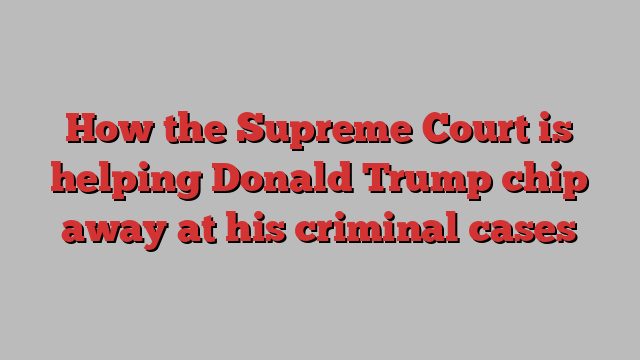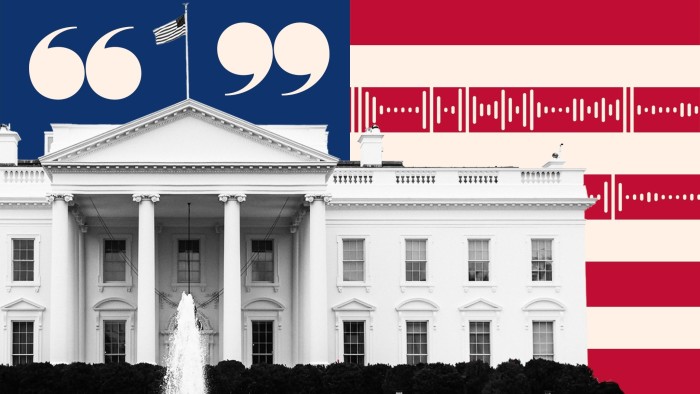
Unlock the US Election Countdown newsletter for free
The stories that matter on money and politics in the race for the White House
Minutes after the conservative majority on the US Supreme Court published its decision this month granting presidents broad criminal immunity, Donald Trump’s legal team spotted an unexpected “Easter egg”.
While most people were focused on how the opinion upended the election interference charges brought against the former president, Todd Blanche and his co-counsel realised that the other federal case brought against their client by special counsel Jack Smith — over the alleged retention of classified documents — also stood a strong chance of being dismissed.
A concurring opinion from Justice Clarence Thomas, a staunch conservative, had sent up what people close to the Trump team believed was a “flare signal”, suggesting that Smith’s appointment was probably unconstitutional. “A private citizen cannot criminally prosecute anyone, let alone a former president,” Thomas wrote.
In a shock decision on Monday, Judge Aileen Cannon seemed to heed Thomas’s call, dismissing the classified documents case in its entirety, on the grounds that the special counsel’s prosecution breached “structural cornerstones” of the US constitution.
Even if it is overturned on appeal, the order in the classified documents indictment, widely considered to be the strongest of the four criminal indictments against the presumptive Republican nominee in November’s election, will delay the case until after the vote — which Trump may well win.
The surprise move underlined how the Supreme Court’s landmark immunity decision has become an unexpectedly broad gift for the Trump team that will probably alleviate many of his legal woes, shifting the momentum decisively back in his favour barely two months after he became the first former president to be convicted of a crime.
Both the federal election interference case and its state equivalent in Georgia rely in part on discussions and orders given by Trump while in office that his lawyers will now argue constitute “official acts” immune from prosecution.
A long delay, and a fresh appeal for the Supreme Court to mark the homework of any evidentiary decision reached by the judges in either case, is all but inevitable. Once in office, Trump could also order his justice department to dismiss the federal case completely.
Have your say

Joe Biden vs Donald Trump: tell us how the 2024 US election will affect you
Even Trump’s historic conviction on 34 felony counts in the Manhattan “hush money” case is also now on less solid ground, thanks to yet another “Easter egg” in the Supreme Court’s decision.
In a move protested by conservative justice Amy Coney Barrett in a separate concurring opinion, the majority ruled that some of a president’s official acts could not even be used as evidence to prosecute a separate case unrelated to his or her duties while in the White House.
As a result, Justice Juan Merchan in Manhattan agreed to postpone sentencing in the case until September, while he examines whether the testimony of former Trump aide Hope Hicks, who spoke about her conversations with him while in office, and certain tweets from his presidency, were unlawfully admitted into evidence during the trial.
Even if he eventually rules against Trump, Merchan’s decision could be appealed to the Supreme Court, where the former president now knows he has several sympathetic ears. Americans will almost certainly go to the polls before any final decision is reached by the country’s highest court.
Barbara McQuade, a former prosecutor and law professor who has strongly supported Smith’s indictments, argued Cannon’s decision on Monday could be seen as “good news” for the special prosecutor, who she said “can now immediately appeal to 11th Circuit and ask for [the] case to be reassigned” to a judge other than Cannon, who was appointed by Trump.
But should the question reach the Supreme Court, Cannon may find some vindication. Thomas’s concurrence in the immunity case had urged lower courts to examine “essential questions concerning the special counsel’s appointment before proceeding” with the cases against Trump.
Although he was not joined by other conservative justices, Cannon made reference to separate rulings and writings by Trump appointees Neil Gorsuch and Brett Kavanaugh, among others, which she believed supported the argument for the dismissal of the classified documents case.
The court’s conservative majority could also find new ways to keep chipping away at any remaining indictments. “The cases have a lot of legal problems to them . . . and I share [the majority’s] concern about that,” said Syracuse University law professor Gregory Germain.
While justices who have stressed the importance of the separation of powers were not necessarily “politically motivated”, they were “very concerned about questionable prosecutions of political candidates”, he added.
Regardless of how any future appeals are decided, Trump has won a reprieve. For better or worse, Germain said, it was “very unlikely that there is going to be any kind of substantive trial before the election”.